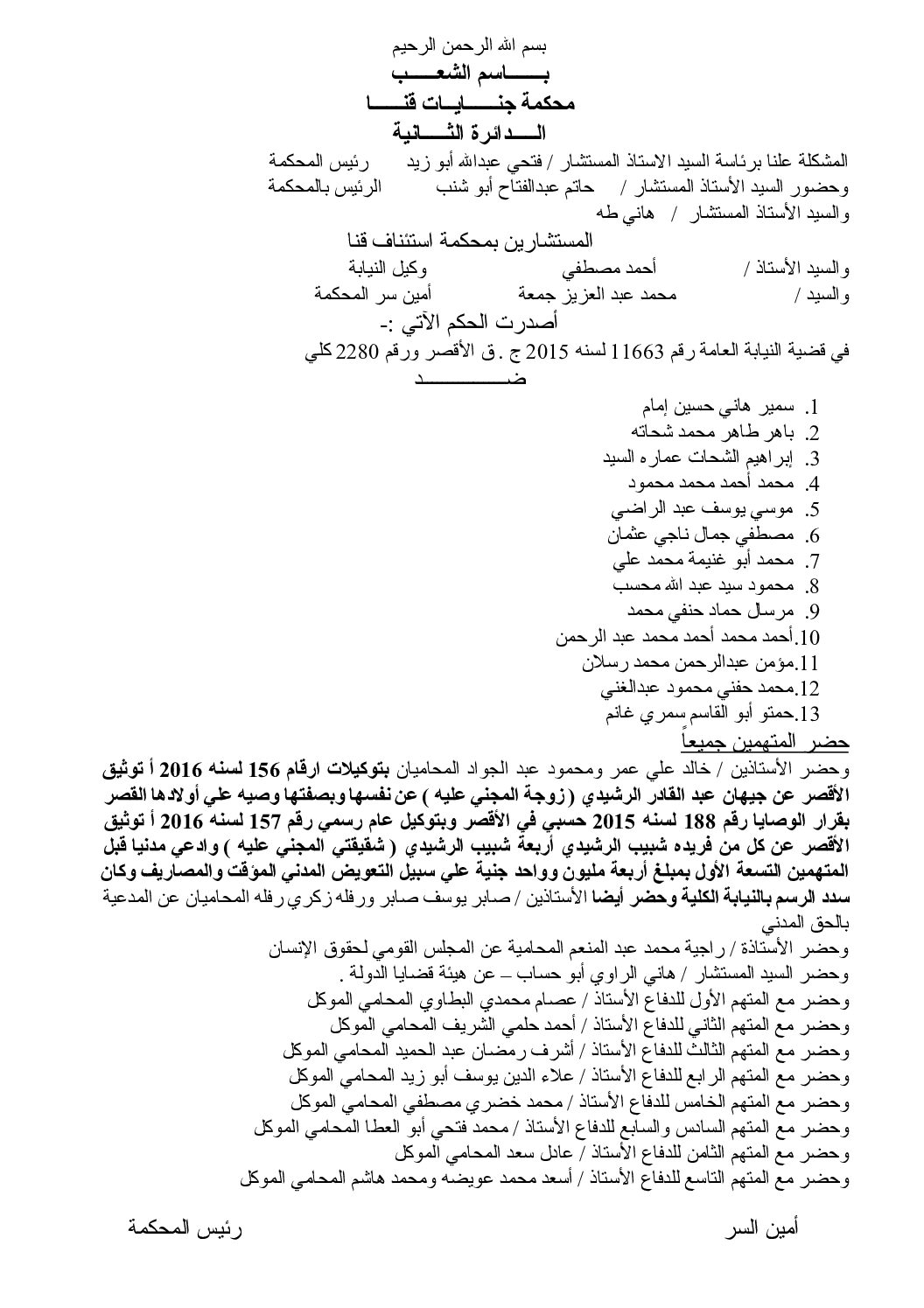In A Letter to the President: Unions and Rights Groups Reject Government Transition to VAT

In a letter to the president and the finance ministry:
Unions and Rights Groups Reject Egyptian Government Transition to VAT
-
Tax is applied to all services and commodities, overburdening only the last consumer
-
Tax overburdens citizens, midst high increases in prices and diminishing of subsidies
On Sunday 21 September 2014, the Egyptian Center for Economic and Social Rights (ECESR) and the Association for Freedom of Thought and Expression (AFTE), in cooperation with the Union of Workers in Sales Tax and several Labor and professional unions and syndicates, sent a letter [Ar] to the President of the Republic, the Prime Minister, the Minister of Finance, and the head of the Egyptian Tax Authority, concerning announcements made by the Finance Ministry in the past few months related to the adoption of a Value Added Tax (VAT) across the board, to replace the General Sales Tax in Egypt.
Although VAT is very widely used globally, it is nonetheless considered to be the most intrusive on citizens rights, especially since it is levied on all goods and services,
Despite these announcements, the signatories stressed that the details of the new tax continue to be obscured. Ongoing negotiations on the draft law remain behind closed doors and continue to the main actors, especially civil society, economic experts, tax workers, and the media. All the while, the IMF continues to send its delegations to provide technical support for the Egyptian government in its efforts to adopt the VAT.
“Although VAT is one of the most widely used system globally, applied in more than 130 countries, it is nonetheless considered to be the most intrusive on citizens rights, especially since it is levied on all goods and services,” the letter indicated. This means the burdens of such a tax will ultimately fall on the end consumer, the citizen. “Hence, the Egyptian government should have appraised the impact of the new tax on citizens’ access to goods and services.”
The letter called on the government to release any available impact assessments it undertook in this regard, especially since lack of disclosure has become a policy, exemplified in the media blackout on the preparation of the public budget in the absence of an elected Parliament.
Planning for a wholesale adoption of VAT came in parallel with concerted efforts by the government to reduce the subsidy bill, through the restructuring of fuel subsidies and deliberations on replacing the subsidy system with monetary assistance to some segments. This would be at the risk of increasing burdens on citizens, especially those with limited income.
These measures, intended to fill the budget deficit in the first place, will impose additional material burdens on consumers, especially in light of soaring unemployment and poverty rates and low wage levels. These measures are also being adopted while Egypt suffers from weak annual growth rates and increasing inflation, with an insufferable impact on prices of food commodities for citizens. Between September 2012 and September 2013 alone, the cost of food in Egypt registered an increase of around 20%.
Although the government announced the switch to VAT in the 2014-2015 budget statement and took into account the financial impact of a full transition, it is clear that general sales tax revenue expected in the 2014-2015 is lower than those announced in the 2013-2014 budget bill. This raises questions on the viability of applying VAT, if it will not increase tax revenues for the government, as indicated in the budget for the current fiscal year. It is imperative, thus, to publicize government plans for tax system reform to be able to understand the viability of transition from GST to VAT and the imposition of further burdens on citizens.
The signatories indicated that tax justice is essential for reforming the Egyptian economy, in addition to rationalizing subsidies, especially regarding the need for state intervention to put an end to subsidies for some large factories with intensive energy consumption. This would free up much needed energy support for the industrial sector in general.
In conclusion, the signatories stressed that addressing the government concerning the VAT was based on their belief in the need to increase government revenues in a sustainable manner, especially tax revenue. It is also based on their commitment to their responsibility as partners of the government in the development of resources, without infringing on citizens’ rights. The letter expressed hope in widening the circle of stakeholder involvement in the planning of public policies, to adopt an economic model, which would achieve social justice, and develop more equitable alternatives to increase state revenue.
Thus, the latter called on the government to disclose the VAT draft bill and all general economic and political plans, to enable civil society in playing its role as a partner in development and the fulfillment of economic and social rights.

